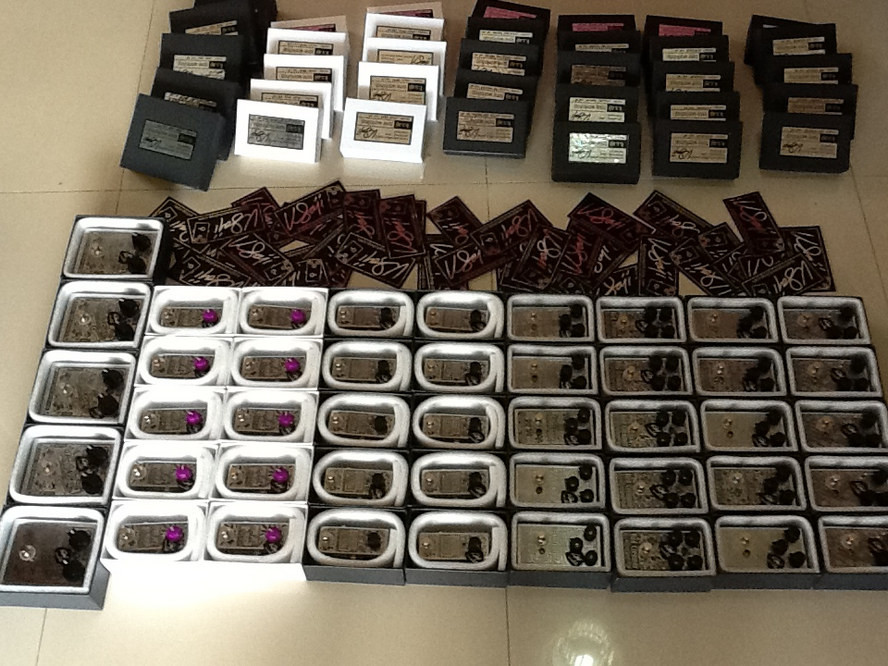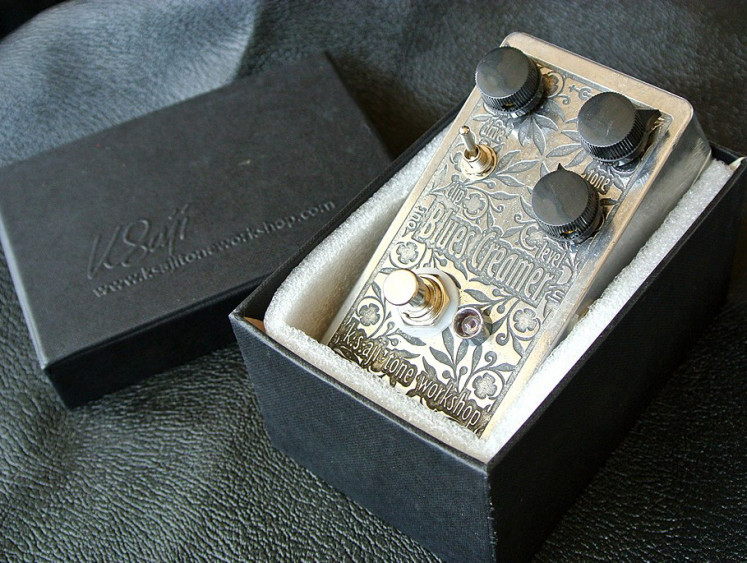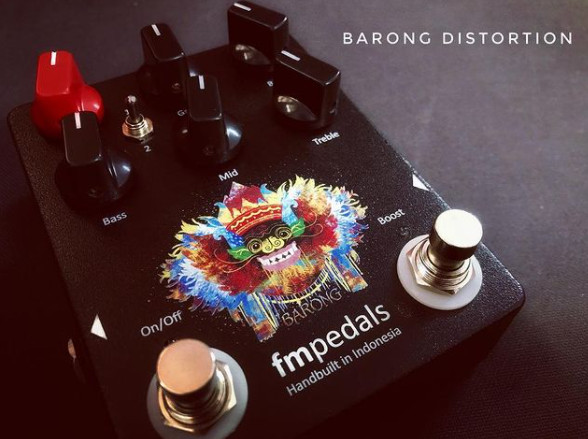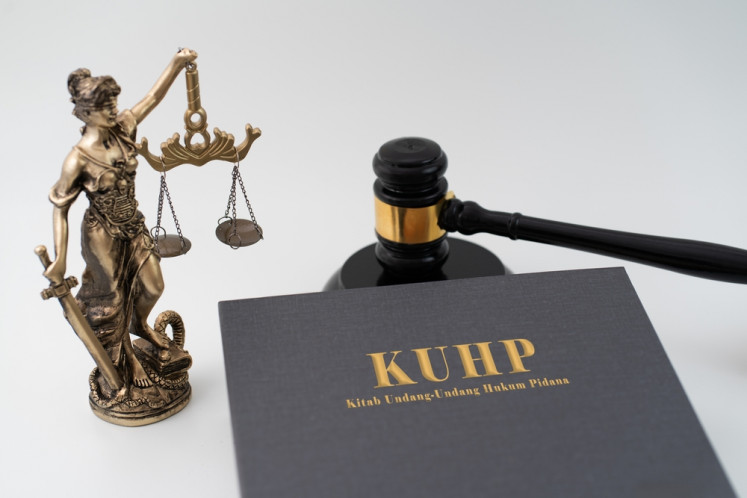Popular Reads
Top Results
Can't find what you're looking for?
View all search resultsPopular Reads
Top Results
Can't find what you're looking for?
View all search resultsIndonesian-made guitar pedals make noise abroad
Indonesian guitar effect pedals may not be popular back home, but they’re creating a buzz abroad.
Change text size
Gift Premium Articles
to Anyone
E
ffects pedals are devices that allow guitar players to expand the sound of their instruments. Just like its name, the box-shaped equipment is pressed with the foot while playing to modify or enhance the sound of an electronic guitar into a distorted buzz, an atmospheric echo, a warbling hum and many other audio effects.
Also called “effectors”, at least two Indonesian companies that produce these devices are making a name for themselves abroad, despite their limited popularity at home. These companies produce “boutique pedals’, so called because they’re produced in limited numbers and are sold at relatively higher prices than mass-produced pedals. Those that buy them are looking for especially unique soundscapes and strong esthetics, and many collect these boutique pedals.
Sylvanus “Ivan” Hardiyanto is the founder of FM Pedals, whose products are used by established guitarists such as Andra Ramadhan from the popular Indonesian band Dewa. Ivan, now 44, lives in Bekasi, West Java, and has been making his own effect pedals since 2016.
He says he began producing them as “revenge” because he couldn’t afford the ones sold commercially. He uses imported high-quality components to achieve the sounds he deems “right”.
Over its young history, FM Pedals has launched several pedals, all named after a mythological Indonesian character or in a nod to the country, like the Barong High-Gain Distortion, the Arjuna Overdrive and the Arwana Fuzz Distortion, as well as the Papua Distortion, named after the country’s easternmost province.
“In naming our pedals, we use the names of Indonesian icons to remember and respect Indonesia’s rich culture and narrative to [promote] nationalism among today’s younger generation,” Ivan explained.
Creamy tone: K.S. Aji Workshop's Blues Creamer is one of its most popular pedals. (JP/Courtesy of K.S. Aji Workshop)One of the iconic events of modern Indonesian history is encapsulated in the 1928 Clean Gain, named for the year the Youth Pledge independence movement was born. But Ivan’s commemorative effort goes a little further with this particular pedal: “The Youth Pledge is printed on its PCB [printed circuit board],” he said.
FM Pedals’ products are relatively affordable compared to other boutique brands, costing between Rp 1.3 million (US$90) and Rp 2 million. More popular brands like GFI System sell from $300 up to $600 on the secondhand market.
According to Ivan, the brand owes its popularity to the each pedal’s particular effect as well as appearance. “Some of our customers are also [drawn to] the uniqueness of the printed artwork on our pedals,” he said.
FM Pedals ships its products all over Indonesia and also exports to Australia, China, Germany, Japan, Malaysia, Singapore, Timor Leste and the United States. While Ivan didn’t want to disclose the company’s sales figures, he said it was enough to pay his bills.
Ivan expressed the hope that the government would eventually provide support for local effects pedal producers, in particular special facilities so they can import the materials they need.
Creamy tone: K.S. Aji Workshop's Blues Creamer is one of its most popular pedals. (JP/Courtesy of K.S. Aji Workshop)He also hoped that more musicians would start appreciating locally made, high-quality effects pedals and be proud of using them.
Roby Aghani, a 21-year-old musician and guitar teacher from Genteng in Banyuwangi regency, East Java, praises the FM Pedals in his arsenal.
“For me, the quality of guitar pedals made in Indonesia isn't inferior to pedals made in other countries. Indonesia has many great guitar pedals of good quality in terms of how they look and sound,” he said.
Modifying famous pedals
It’s been 12 long years since Kintoko S. Aji first started his independent business. He was living in Batam, Riau, in 2009 when he began using eBay to sell modified versions of the immensely popular effectors from BOSS, arguably the most used effects pedals brand in the world and manufactured by Japan’s Roland Corporation. The positive feedback he received was unexpected and motivated him to start his own brand.
“Around 2010, I started marketing effects pedals under the brand K.S. Aji Tone Workshop, still on eBay but also on the domestic market, because my effects were starting to be discussed on [online] Indonesian guitarists forums,” he said.
Kintoko’s pedals sell in the same price range as FM Pedals.
“The ones that sell the most are the overdrive effects [pedals], Blues Creamer and Red Creamer. I’ve already sold hundreds of them,” he said. “Maybe [it’s] because the overdrive effect is a must-have effect for guitarists, and maybe my effect is one of the best on the market.”
Pandemic disruption
From 2010 to 2014, Kintoko saw his monthly sales revenue go through the roof at estimates of $1,500-$3,000.
Post-2014 sales haven’t been as stable, and Kintoko refocused on his work as an architecture and interior contractor. The pandemic has caused his sales to decline even further, with only two pedals sold to Japan this year.
“In the beginning, we regularly sent pedals all over the world... In the past, we even had a reseller in Japan,” he said, noting that his pedals sold the most in Japan as well as the US and Australia.
Snarling sound: The Barong Distortion pedal is FM Pedal's most popular product. (JP/Courtesy of FM Pedals)Still, Kintoko hopes to see the local industry grow.
“In general, the music industry is an industry with potential for development. Music has become a public need, especially during this pandemic era, when people are restricted in travel and tourism so they spend a lot of time playing music at home, either to just relax or [to be] productive at work,” he said.
“My hope is that Indonesia, which has a lot of human resources talent and natural resources, can have more locally made musical products of global standards.”












